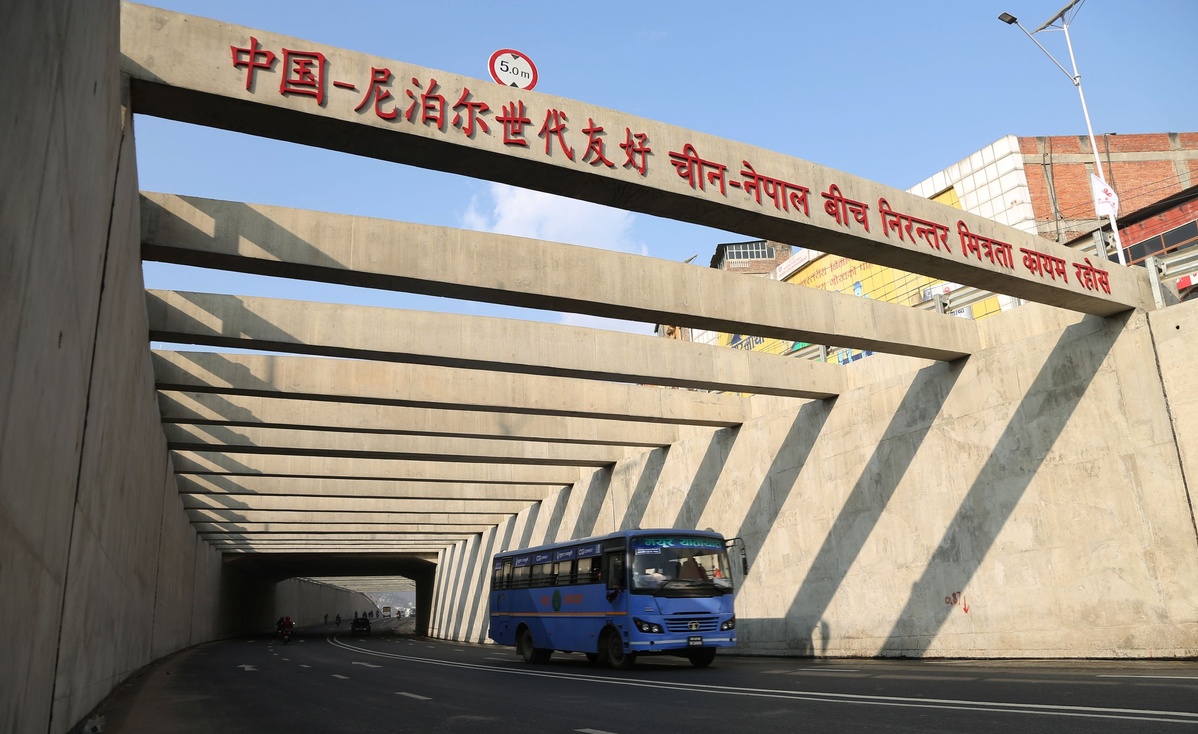Nepal and China ideal partners in development


Nepal and China established diplomatic relations on Aug 1, 1955. Ever since, the successive leaderships of the two countries have cultivated bilateral relations for mutual benefit.
Nepal and China also share common aspirations for peace, prosperity and development, and enjoy good neighborly relations based on the five principles of peaceful coexistence. Amity, goodwill, sincerity, and trust are the hallmarks of our bilateral relations.
Nepal remains firm in its one-China policy, while China has remained a major development partner of Nepal including in the fields of infrastructure, transport, energy, health, education, reconstruction and human development.
China has made great strides in economic development and social transformation, including poverty alleviation. Thanks to its development, China has also made great contributions to the world economy. It has also been playing a significant role in shaping the global agenda for peace and development. Further, China has offered to share its expertise and resources with developing countries for common benefit. Which will greatly help a country such as Nepal.
The two countries' history of interactions and exchanges is long. Scholars such as Buddha Bhadra of Nepal and Faxian and Xuanzang of China linked the two countries through philosophical exchanges from the 5th to the 7th century. Nepalese artistes contributed to painting one of the world's most precious grottoes, at Dunhuang in Gansu province, in the 8th century. And Araniko and his team built several stupas and Buddha's images in China, including the Great White Pagoda (Bai Ta Si) in Beijing and Shanxi province in the 13th century.
Our relations have continued to deepen and expand over centuries, and gained further momentum after the establishment of diplomatic relations in 1955. Bilateral ties reached a new height in April last year when President Bidya Devi Bhandari paid a state visit to China in April. Apart from meeting with President Xi Jinping, she witnessed the signing of important bilateral agreements including Transit Transport Protocol and cooperation in quality standard. She also took part in the Second Belt and Road Forum for International Cooperation, which issued a statement for jointly developing the Belt and Road Initiative that reflects Nepal's development aspirations.
China was the top source of foreign direct investment in Nepal, and the second-largest source of tourism last year. And with several agreements and memorandums of understanding signed to deepen Sino-Nepalese cooperation, 2018 was a significant year for strengthening overall bilateral relations.
In recent years, the Nepalese government's most urgent task has been to build institutions, set development goals and mobilize resources to achieve them. Nepal has initiated various reform measures to attract investment and foreign technology in order to meet the development aspirations of the Nepalese people. The government has set development targets for building major infrastructure, including railways, roads and airports.
While Nepal is using internal resources to the maximum to realize those goals, the support of friendly countries and the international community will be of crucial importance to Nepal's development endeavors. In this respect, Nepal's cooperation with China is of great value and substance. Since China has the experience of lifting more than 700 million people out of poverty and realizing fast-paced economic development, it is an important partner-in-development for Nepal.
The two sides have been working closely to develop infrastructure and improve connectivity. For diversifying and boosting land-locked Nepal's international trade, transit, investment and tourism, railway connectivity is of vital significance. Also, Nepal has not been able to fully tap the huge potential of hydropower, new energy, agriculture, and herbal and traditional medicine-areas in which China has enormous expertise, and therefore the ability to support its neighbor. And since Nepal's socio-economic uplift would contribute to regional growth and stability, Sino-Nepalese development cooperation is a win-win proposition.
China advocates equality, inclusive development, multilateralism, and a rules-based world order. Similarly, Nepal supports multilateralism, and economic cooperation that is just and inclusive, and attributes responsibility to a country according to its capacity. Nepal and China are ideal development partners, for they are committed to fulfilling the aspirations of their peoples, and building a just, inclusive and peaceful global order.
The author is ambassador of Nepal to China. The views don't necessarily represent those of China Daily.


































